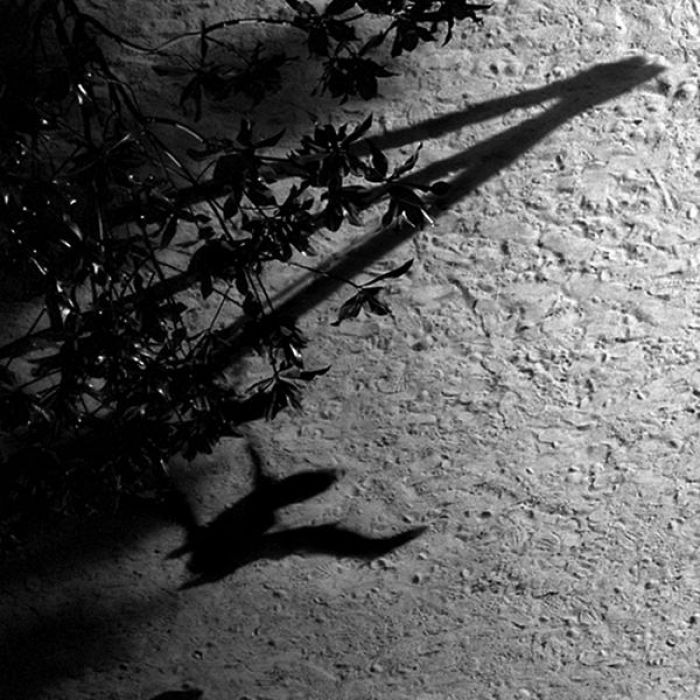The Blue Notebooks by Max Richter (Review)

On paper, the concept for The Blue Notebooks sounds pretentious, to say the least — a collection of orchestral and electronic numbers that serves as background music for readings of Franz Kafka and Czeslaw Milosz by actress Tilda Swindon. However, that description, as accurate as it might be, doesn’t come close to describing the arresting and singular beauty present throughout this disc.
For starters, Swindon’s readings only comprise a fraction of the disc’s total length, so if you’re looking for a “Books On Tape” experience, you’ll need to look elsewhere. Swindon’s readings are hushed, backed by the sounds of the typewriter and the faint strains of Richter’s piano playing in the background. There’s something surreal about these short pieces, as if you’ve somehow managed to stumble across the author at work and are listening in on some sort of inner monologue whilst they peck away at the keys.
The texts themselves are but short fragments that deal with memory, the ghosts that haunt people’s lives and the places they’ve lived, and the impermanence of things (which is accentuated by the album’s shadowy artwork). This is perfectly suited for the music that Max Richter composes. Although much of the album’s attention may be due to Swindon’s involvement, it is truly Richter’s haunting compositions that are the heart and soul, and the true attraction, of this disc.
“On The Nature Of Daylight” follows a Gorecki-esque path, as solemn, mournful strings slowly build up to a keening climax and “Horizon Variations” sees Richter layering his sparse, shimmering piano notes over dream-like, Boards Of Canada-esque electronics. “Shadow Journal” opens with a tense violin eking out notes over vaguely unsettling synths, and slowly picks up the pace as new synth lines emerge against distant electronic pulses.
Blending strings and piano with electronic textures and programming is, of course, nothing new. However, that does not at all diminish how well Richter does it. And he blends these elements in such a way that they accentuate rather that detract from one another.
Tone-wise, a deep sense of brooding and anxiety flows through this album. For instance, the slow, inexorable, and devastating culmination of “The Trees” and “Written on the Sky“ ‘s touching coda. It’s almost as if they themselves ruminate on the moody fragments read by Swindon, as if the music itself is fully resigned to inevitable loss and impermanence.
It’s almost cliched to describe this sort of music as “cinematic,” but it’s also incredibly truthful. A quick perusal of the IMDb reveals that Richter has done no soundtrack work, which is a shame. Every single one of these songs feels lifted from the soundtrack to some long forgotten classic — yet another reason for their nostalgic atmosphere. At times, Richter’s work is reminiscent of Yann Tiersen’s — “Vladmir’s Blues” has an almost Amelie-esque feel to it, albeit much more melancholy and downbeat. And the other comparisons that leap readily to mind — Craig Armstrong, Hilmar Orn Hilmarsson — are just as cinematic (and downbeat) as well.
One almost feels slightly sacrilegious if one doesn’t give their full, undivided attention to the album as its playing. There’s this sense that if you don’t do that, that if you simply let it sink into the background, you’re missing out on something timeless and fragile, something that is lost once the album — which runs a scanty 46 minutes — has finished playing.
Thankfully, one can always press “Play” and try to recapture it again. And I suspect that many shall.